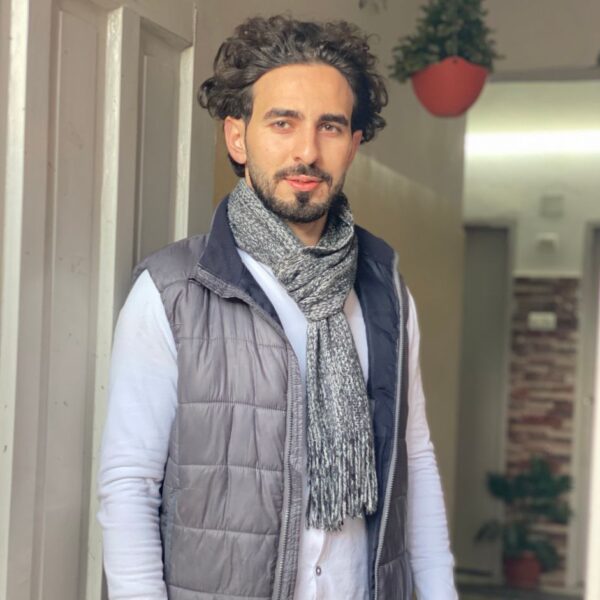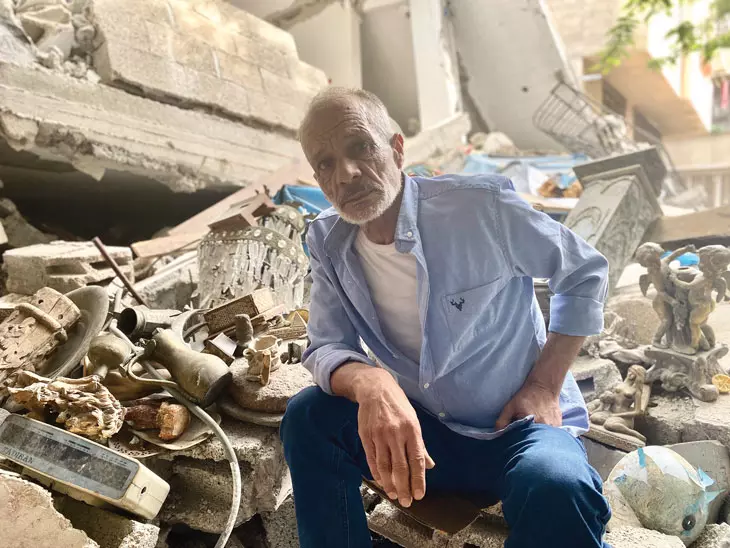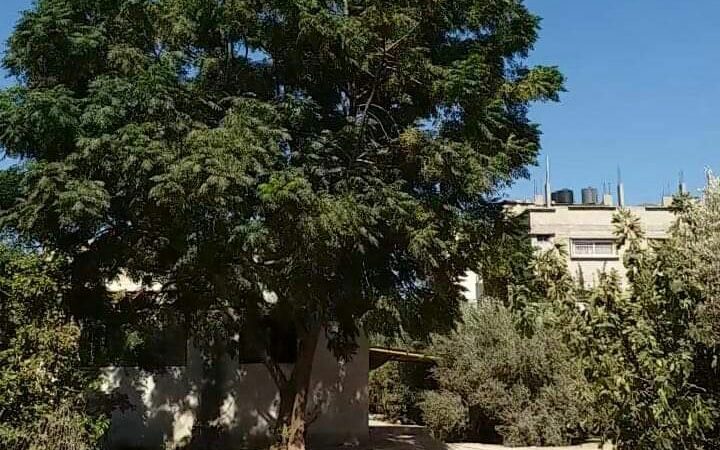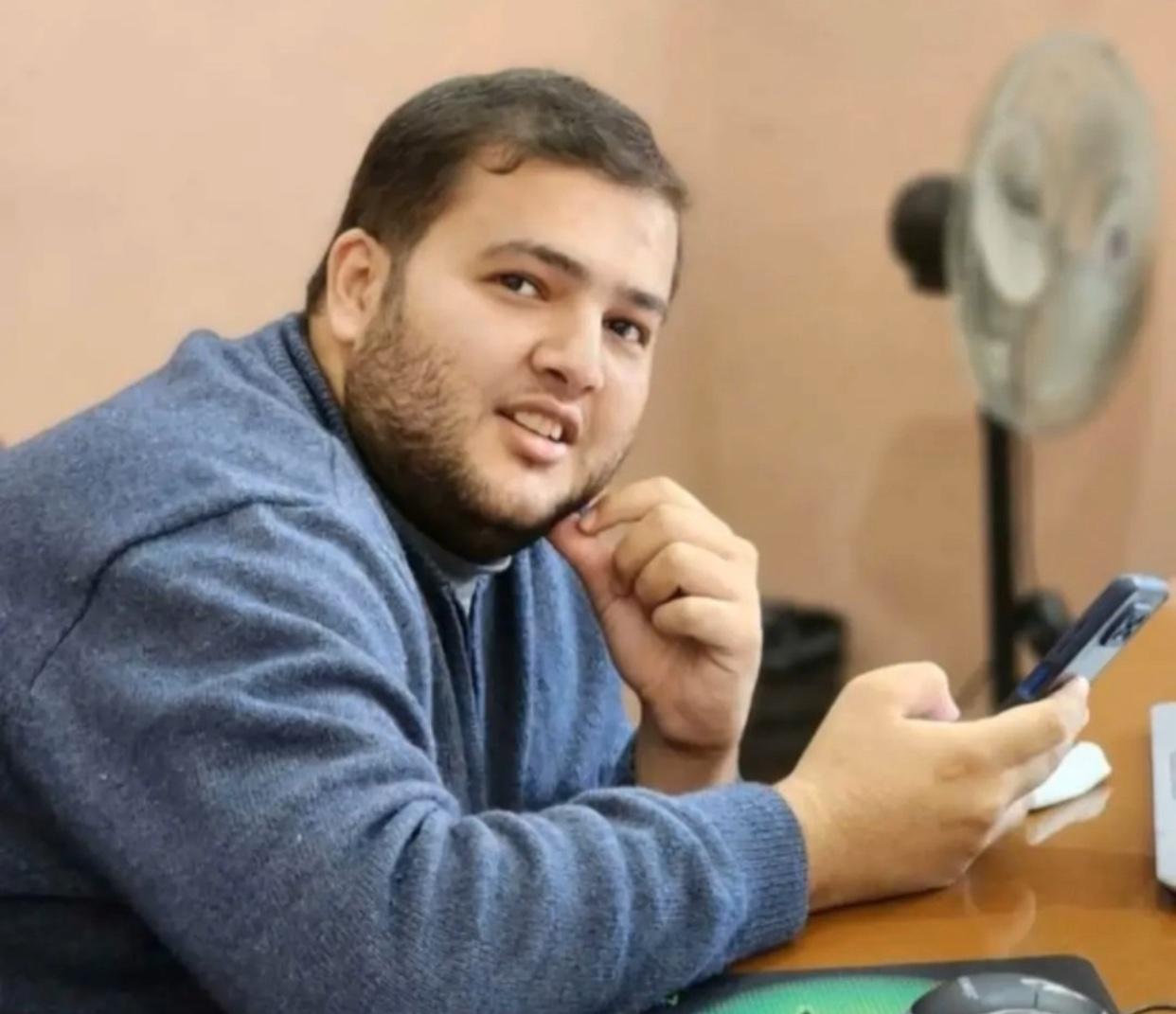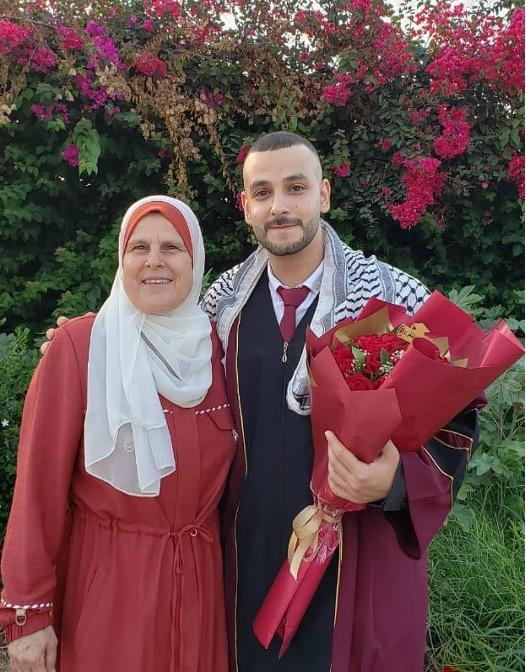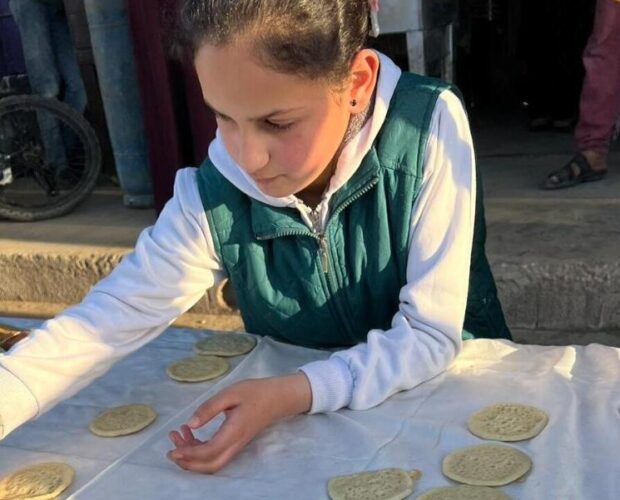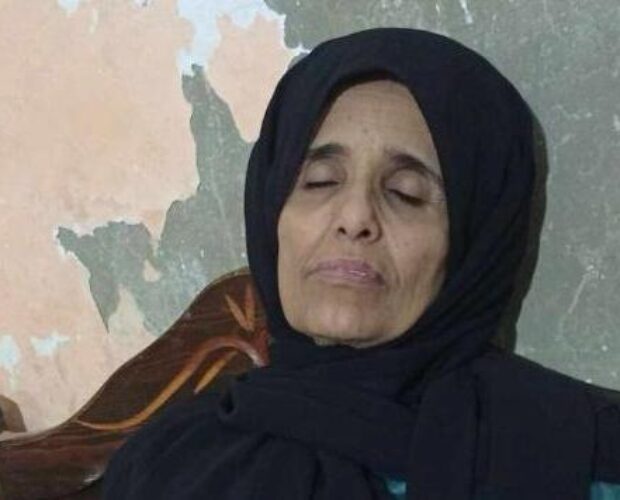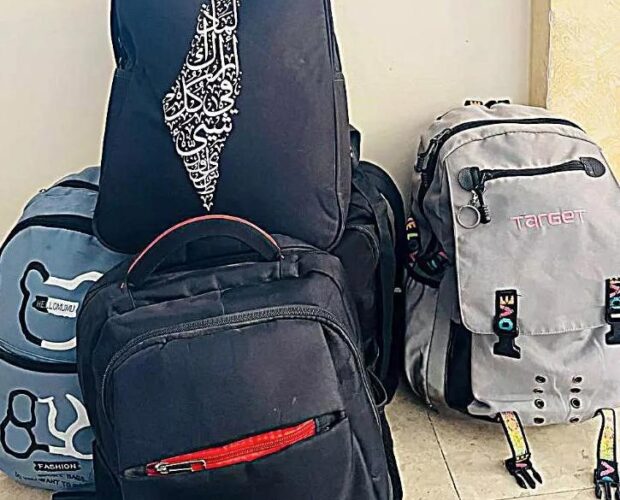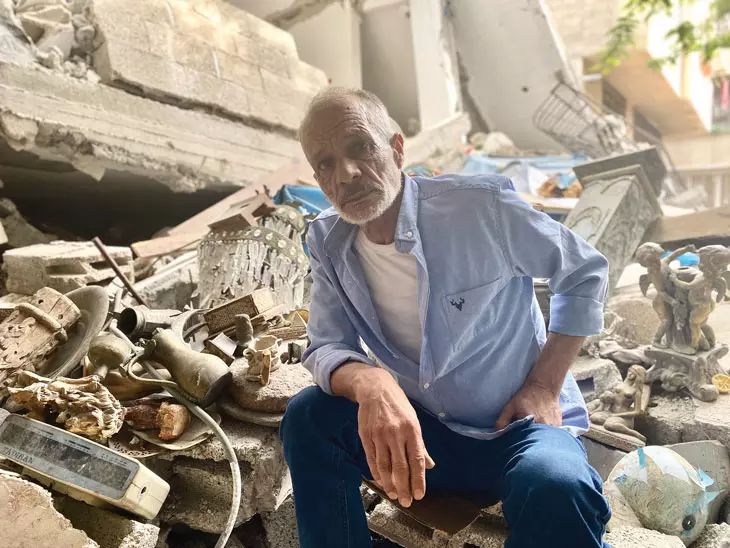
In a small room in his house, Hazem Muhanna, 62, created an antique museum. He has accumulated more than 2,000 artifacts that commemorate Palestinian and Arab culture.
Hazem discovered his passion for artifacts at age 13, when he visited his uncle’s house and saw antiques there. Then he recognized the pleasure he felt when he was around old objects that evoked memories.
Since then, Hazem started going to the market every week to look for objects—embroidery, ceramics, woven baskets, furniture, metalware and glassblown vases to buy from his small weekly allowance.
By age 20, he decided to devote a room in his house to his collection. He began to educate himself about art and antiques through watching videos and going to local art galleries. To broaden his search for unusual antiques, he traveled many times to Egypt to visit historical monuments and old markets like Khan al-Khalili and Souq al-Ataba. He became known in Gaza for accumulating the finest pieces.
His collection included ancient Palestinian certificate documents such as his grandfather’s Mandate-era identification card and old Arabic banknotes, beautifully crafted pottery, antique clocks and watches, old coins, vinyl records, embroidered clothes, precious stones, paintings and handmade walking sticks of various types.
After retiring from his job as an employee at UNRWA in Gaza, Hazem bought two cars with his end-of-service gratuity planning to develop a source of income by renting them. “I sold the cars to buy new artifacts,” he admitted. “I decided to make a living by selling some of my pieces and buying new ones,” the passionate 62-year-old man said.
“My museum cost me more than $50,000, but money is nothing compared to the freedom of having a cup of good coffee surrounded by my collection in my house.”
On Monday, May 9, Israel launched a series of attacks on Gaza that lasted for five days. These attacks killed 33 Palestinians, including six children and three women, and injured 147 according to the Palestinian Ministry of Health.
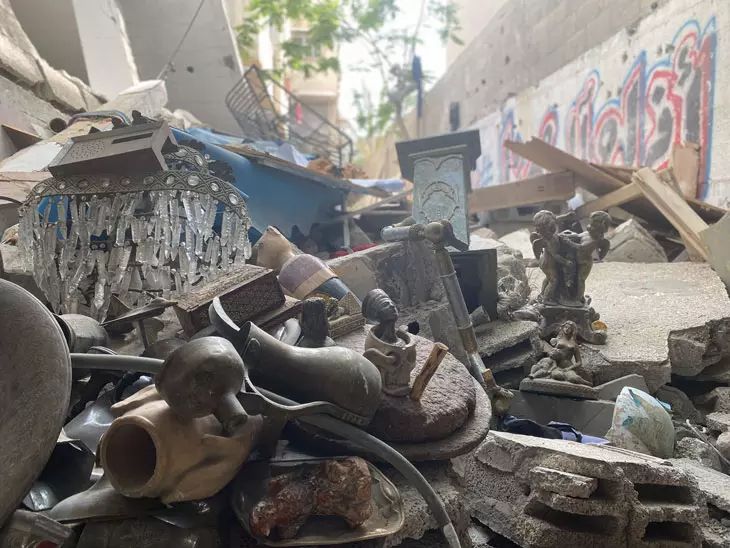
On the last day of the assault, an Israeli soldier called Hazem’s brother and told him that his building would be bombed within five minutes and to leave while he could. Three brothers, including Hazem, lived there with their families.
Hazem, like many Gazans, invited his married daughters and their families to stay with him during the assault because if they are bombed, “at least we would die together so no one grieves the others,” he explained.
He was sitting in a hall in the middle of his apartment with his family when his brother came to tell them to flee the house. He rushed with all 53 members of his extended family out of the building into the street.
An hour later, the first Israeli missile hit the building. “I started screaming. My beloved museum. My whole life. I fainted,” Hazem said, his hands shaking. Two more airstrikes and the building was reduced to rubble.
“I became speechless just thinking about my collection and the first piece I bought and now all of my priceless pieces were destroyed in front of my eyes in seconds.”
Moments after the bombing, Hazem rummaged through the rubble hoping to find some surviving pieces of his antiques, but he found only a few coins and some broken vases.
Hazem, now homeless with his large family and grieving the devastating loss of the museum, recalls other losses. “They destroyed my father’s house in Al-Masmiyya al-Kabira [a Palestinian village in the Gaza District] in 1948, and now, 75 years later, they have destroyed my home.” But Israel’s destructiveness goes beyond Palestinian homes: “The Israeli occupation relentlessly seeks to erase our historical existence, demolishing the tangible remnants that connect us to our past whether our land, our homes, our people, or even a simple piece of handmade embroidery.” He is determined to start collecting antiques and heritage pieces again.
This article is co-published with Washington Report on Middle East Affairs.
Editor’s note: On Sept. 5, 2023, writer Ahmed Dremly informed WANN: “Hazem Muhana, the antique collector, passed away last week. His heart couldn’t bear the life after his loss; he died of a heart attack.”

